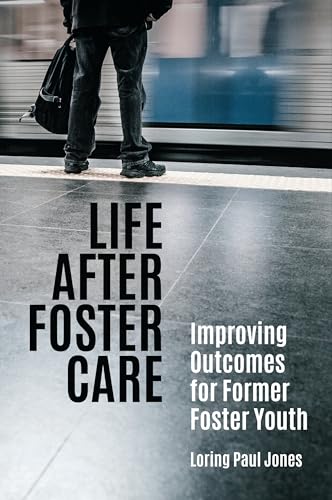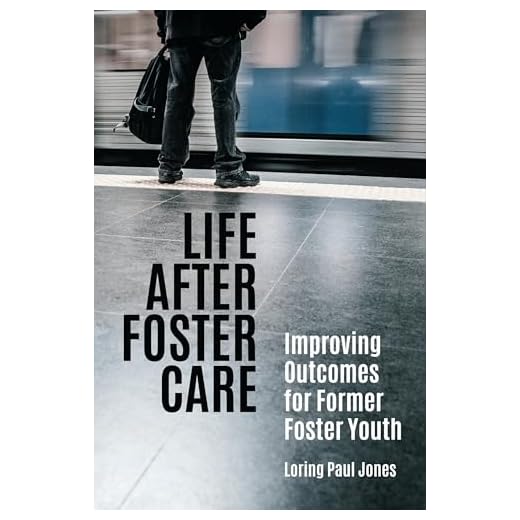






In the unrelenting landscape of transitions and temporariness, lies a journey that countless individuals embark upon. This odyssey of uncertainties and constant adaptation takes place within the realms of temporary guardianship – the enigmatic realm known as foster care.
A profound question looms over this labyrinthine domain: How extended is one’s sojourn within this intricate system? While time cannot be unequivocally measured, it is a paramount aspect that molds the experiences and destinies of those entangled in the intricacies of foster care.
The duration of an individual’s presence in this realm of surrogate family structures is one that brims with unique complexities and ever-changing circumstances. Like a pendulum that swings unpredictably, the length of stay in foster care undulates based on a multitude of factors.
Each individual’s journey through the realm of foster care manifests an intricate tapestry, woven by the interplay of numerous elements. Transition periods are punctuated by shifts in family dynamics, legal proceedings, and the ongoing search of a stable and nurturing environment. These interwoven threads of existence define the passage of time for every person within this labyrinth.
Duration of Placement in Foster Care
Exploring the Average Length of Time Spent in Foster Care
When children enter foster care, their experience in temporary out-of-home placement can vary widely. This section aims to delve into the typical duration of a child’s stay within the foster care system, shedding light on various factors that may influence the length of their placement.
Understanding the average length of stay in foster care enables us to evaluate the effectiveness of the system and identify areas for improvement.
Research indicates that multiple factors contribute to the duration of a child’s stay. These factors can range from the unique circumstances of the child’s removal from their biological home to the availability of suitable adoptive or permanent guardianship options. Additionally, the child’s age, specific needs, and the overall capacity of the foster care system within a given region can play a significant role in determining the length of their stay.
It is crucial to understand that every child’s journey in foster care is unique, and while some may experience temporary placements leading to family reunification in a relatively short time frame, others might face extended periods where stable long-term solutions are sought.
While statistics regarding the average duration of a child’s stay in foster care vary across different regions, studies suggest that the average length can span from several months to multiple years. Efforts are continually being made to minimize the time spent in temporary placements and prioritize permanency for children in foster care.
In conclusion, understanding the average length of stay in foster care helps policymakers, child welfare professionals, and communities develop strategies to provide timely and appropriate support to children in need of stable and loving homes.
Factors influencing the duration of placement
In the process of determining how much time one can spend in foster care, several influential factors come into play. These factors contribute to the overall length of a child’s stay in foster care, potentially extending or shortening their time in placement.
| Factors | Description |
|---|---|
| Age | The age of a child entering foster care can significantly impact the duration of their stay. Younger children may benefit from longer stays to establish stability, while older children may have more specific needs that require expedited permanency planning. |
| Behavioral Health | The presence of behavioral health issues can influence the time spent in foster care. Children with complex mental health needs may require specialized treatment or therapeutic interventions, which can extend their stay in placement. |
| Placement Stability | The stability of a child’s foster care placement can impact the overall duration. Frequent moves between foster homes or disruptions in placement can increase the time needed to find a suitable and long-term placement for the child. |
| Legal Processes | The involvement of legal processes, such as custody battles or parental rights termination, can prolong a child’s stay in foster care. These processes require time for resolution before permanency can be achieved. |
| Family Reunification | The goal of foster care is often to facilitate family reunification. The availability and success of reunification services, such as therapy and parenting programs, can influence the length of stay as efforts are made to reunite the child with their birth family. |
| Adoption Opportunities | In cases where reunification is not possible, the availability of suitable adoptive families can affect the duration of foster care. Delays in the adoption process or a limited pool of potential adoptive families may prolong the child’s stay. |
It is important to consider these factors and their interactions when determining the length of stay for a child in foster care. Each case is unique, and professionals involved in the child welfare system strive to make decisions that prioritize the child’s well-being and ensure a safe and stable environment for their growth and development.
Impact of Extended Foster Care Arrangements on Children
In the context of this subject, it is crucial to explore the effects that extended periods in foster care have on children. Living in consistent and secure foster care environments for substantial durations can significantly shape a child’s development and well-being.
Emotional Development:
Extended stays in foster care can have a profound impact on a child’s emotional well-being. These experiences can instill a sense of insecurity, anxiety, and fear in children, as they may develop a lack of trust or difficulty forming attachments with others. Challenges in adjusting to new environments and relationships can lead to emotional instability and hinder the child’s ability to develop healthy coping mechanisms.
Educational Challenges:
The long-term nature of foster care arrangements can often result in disruptions to a child’s education. Frequent moves between schools may cause significant academic setbacks and difficulties in building consistent peer relationships. The inconsistency in educational opportunities coupled with emotional challenges can lead to lower educational attainment and reduced future prospects for children in extended foster care.
Identity Development:
Extended periods in foster care can have a profound impact on a child’s sense of identity formation. The lack of stability and continuity in their living situations can lead to feelings of displacement, confusion, and a struggle to establish a strong sense of self. These challenges may also manifest in difficulties in understanding and embracing their cultural, racial, or ethnic background.
Behavioral Issues:
Children in extended foster care arrangements may experience higher rates of behavioral problems compared to their peers. The instability and trauma associated with foster care can contribute to issues such as aggression, substance abuse, self-harm, and delinquency. Without appropriate support and intervention, these behavioral issues can persist into adulthood and impact the child’s long-term well-being.
Social Relationships:
Extended stays in foster care can create obstacles in developing and maintaining healthy social relationships. Frequent placements and the loss of significant connections can lead to difficulties in forming lasting friendships and developing a support network. These challenges can perpetuate feelings of isolation and hinder the child’s ability to establish meaningful connections throughout their lives.
In conclusion, extended periods in foster care have far-reaching consequences on a child’s emotional and psychological development. Understanding these effects is crucial in facilitating the provision of targeted support and interventions to mitigate the negative impacts and promote the overall well-being of children in long-term foster care.
Challenges Faced by Transitioning from the Foster Care System
As young individuals embark on their journey of aging out of the foster care system, they encounter a myriad of challenges that necessitate resilience, adaptability, and support. The transition from foster care into independent adulthood poses unique obstacles that can have lasting impacts on these individuals’ lives.
Lack of Stability: One of the significant hurdles faced by those aging out of foster care is the absence of a stable environment. Without a nurturing family or consistent support system, these young adults often find themselves in a state of limbo, lacking the secure foundation necessary for personal and professional growth.
Financial Instability: The lack of financial resources is another critical challenge faced by individuals transitioning from foster care. Without the financial literacy and stability to secure housing, access healthcare, pursue higher education, or cover daily expenses, these young adults can find themselves at a disadvantage as they strive for self-sufficiency.
Limited Social Networks: Many youth aging out of foster care confront the obstacle of limited social networks. The absence of lasting relationships and a supportive community can impede their ability to develop healthy interpersonal connections, access necessary resources, and have a sense of belonging and emotional well-being.
Emotional and Mental Health Struggles: Transitioning from foster care into adulthood can also lead to emotional and mental health challenges. The trauma and instability experienced during their time in the foster care system can have lasting effects, contributing to anxiety, depression, and other mental health disorders. Access to comprehensive mental health services is crucial for addressing and managing these struggles.
Lack of Education and Employment Opportunities: Without a stable support system, many individuals aging out of foster care face limited educational and employment opportunities. The lack of resources and guidance can hinder their ability to pursue higher education or secure meaningful employment, increasing their vulnerability to lower-income levels and socioeconomic disparities.
In conclusion, the challenges faced by young individuals as they age out of the foster care system are extensive and multifaceted. It is imperative that society, policymakers, and support systems recognize the unique obstacles encountered by these young adults and provide the necessary resources, programs, and assistance to help them overcome these challenges and successfully transition into independent adulthood.
Limited support and resources for self-sufficiency
The pathway to independent living after leaving foster care can be challenging, primarily due to the limited support and resources available for young individuals in such circumstances. The transition from foster care to self-sufficiency requires access to various services and assistance, which are often insufficiently provided.
| Challenges | Impact |
|---|---|
| Limited access to higher education | Significantly reduces opportunities for career advancement and financial stability. |
| Unstable housing situation | Causes difficulties in finding and maintaining stable accommodation, increasing the risk of homelessness. |
| Lack of financial support | Makes it difficult to cover basic living expenses, such as rent, food, and transportation. |
| Inadequate job placement assistance | Leads to limited employment opportunities, hindering the ability to secure a steady income. |
Without comprehensive support systems, individuals aging out of foster care may face significant barriers in pursuing personal and professional goals. It is crucial to address these challenges and ensure that the necessary resources, guidance, and mentorship are provided to empower young people to achieve self-sufficiency and thrive in their adult lives.
Increased Vulnerability to Homelessness and Unemployment
Being separated from the stability and support of a nurturing family environment can have long-lasting consequences for young individuals who have experienced foster care. These individuals are particularly vulnerable to facing higher rates of homelessness and unemployment compared to their counterparts.
1. Limited Social Support Network
One of the factors contributing to the increased risk of homelessness and unemployment among individuals who have been in foster care is the limited social support network available to them. During their time in foster care, they may have experienced multiple placements and disruptions, resulting in a lack of consistent relationships and connections that can provide assistance during challenging times.
2. Emotional and Psychological Impact
The emotional and psychological impact of being in foster care can also contribute to the heightened vulnerability to homelessness and unemployment. Many young individuals who have experienced foster care may struggle with feelings of abandonment, low self-esteem, and mental health issues, which can impair their ability to maintain stable housing and secure employment.
3. Limited Educational Opportunities
Education plays a crucial role in shaping future prospects and opportunities. Unfortunately, individuals who have been in foster care often face educational disruptions and lower academic achievement. This lack of educational attainment can limit their employment options and make it more difficult to secure stable and well-paying jobs.
- Unstable housing situations can make it challenging to maintain a consistent job or participate in job training programs.
- The lack of positive role models and guidance during their time in foster care may result in a limited understanding of the job market and how to pursue career opportunities.
- Without adequate support and resources, individuals may struggle to overcome the barriers they face in the job market, leading to long periods of unemployment.
Addressing the increased risk of homelessness and unemployment among individuals who have experienced foster care requires a comprehensive approach that includes providing stable housing options, access to education and job training programs, and ongoing support for their emotional well-being. By addressing these factors, it is possible to improve outcomes and create brighter futures for those who have spent time in foster care.






